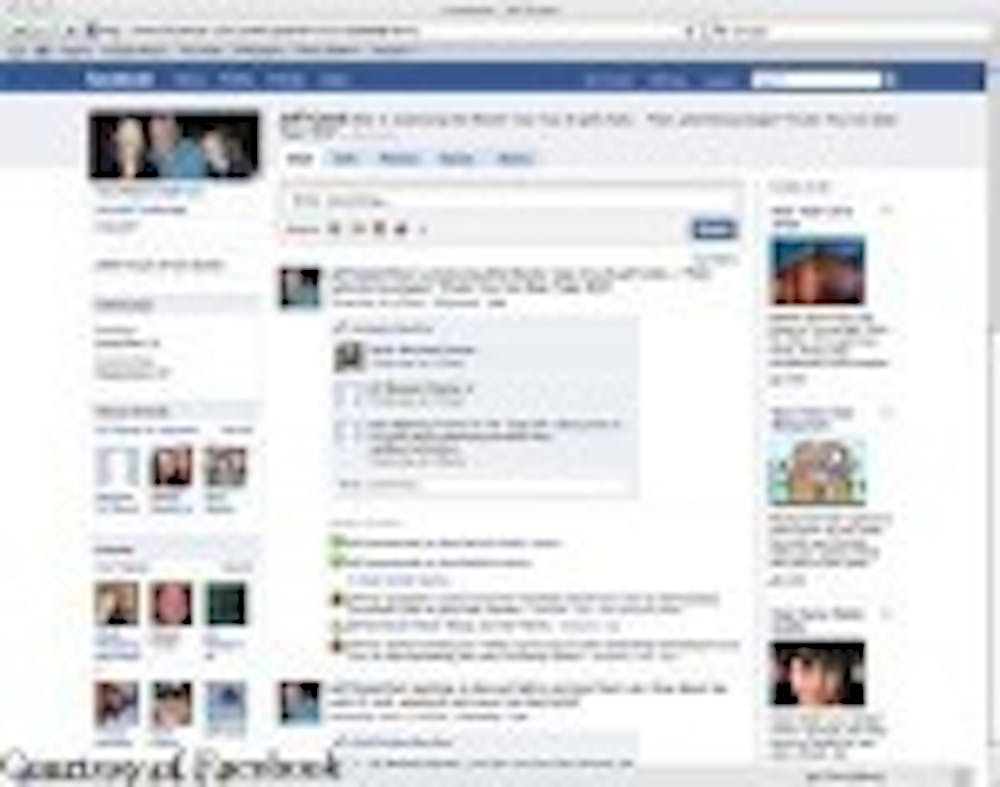As students made their daily – or hourly – pit stops to their Facebook profiles on Tuesday, they might have noticed something out of the ordinary. A letter addressed to all 350 million Facebook users was at the top of their news feed.
The letter, from Facebook founder Mark Zuckerberg, detailed specific privacy changes that Facebook will implement in the coming weeks to accommodate the site's growing population.
'We're adding something that many of you have asked for – the ability to control who sees each individual piece of content you create or upload,' Zuckerberg said in the letter.
What began as a cyber hangout used exclusively by college students in 2004 has since opened its doors for anyone and everyone to crash the party. The growth of so many users is among the list of reasons why Facebook users demanded a more secure site and the ability to choose which friends can see certain information.
The graying population has proved to be the primary invaders of the Facebook soiree, according to iStrategyLabs, an online company that collects Facebook data for advertisers. The company found that from January to July of this year, the number of Facebook users 55 years or older has increased over 500 percent.
Many college students' parents now use the site. Parents can now virtually peer over their child's shoulders while they are off at school, which is why Cameron Ruocco, a freshman business major, waited a month before accepting his mother's friend request after she created a Facebook account.
'I don't have anything to hide, but if I blocked certain things from her, she would know,' Ruocco said. 'It's not really a bad thing that parents are on Facebook because my mom has been able to keep in contact with people from high school and college. But when they start looking at their kids' profiles, it's kind of like them going through our rooms.'
Christine Arnone, a mother of four, says she joined Facebook this year to connect with friends from the past but was concerned her 20-year-old twins would think it was for snooping purposes.
'I was hesitant at first to join because Megan and Joshua were both members and I thought they would think I was spying. But Megan laughed when I told her I was considering it and Josh got a chuckle, too. I was not sure if they were happy or embarrassed,' Arnone said.
Megan, a junior communication major, admits to initially feeling uncomfortable with her mother's Facebook account, but now that she lives on campus, she welcomes it as a way for her mother to remain involved in her life away from home.
'I enjoy my mom being on Facebook because it's an easy, fun way for us to keep in touch. My hometown is only an hour and a half away, but I don't get to visit enough,' she said.
But not everyone shares Megan's positive feelings about connecting with a parent through social networking. The Facebook group, 'For the love of God – don't let parents join Facebook,' currently has over 8,200 high school and college-aged members committed to kicking parents off the Web site they feel belongs to them.
But the parental adoption of Facebook does not seem to be slowing down. Straightforward, easy to use features make Web sites like Facebook desirable to everyone, not just college students, according to Michael Stefanone, an assistant professor in the Department of Communication who specializes in social media.
'It's a natural spread, [Facebook] does everything,' Stefanone said. 'It's micro-blogging through status updates, it's photo-sharing, it's video-sharing, and naturally with its ease of use, other populations will adopt.'
But if parents are joining Facebook with the goal of better relating to their children, the results may be disappointing.
'Young people have a better understanding of the technology and are more familiar with it,' Stefanone said. 'As a result, they are starting to manage their Facebook networks like they manage their outside networks and setting [privacy] preferences. Because they are better able to control who sees what, they can restrict what they let their parents see.'
E-mail: features@ubspectrum.com





